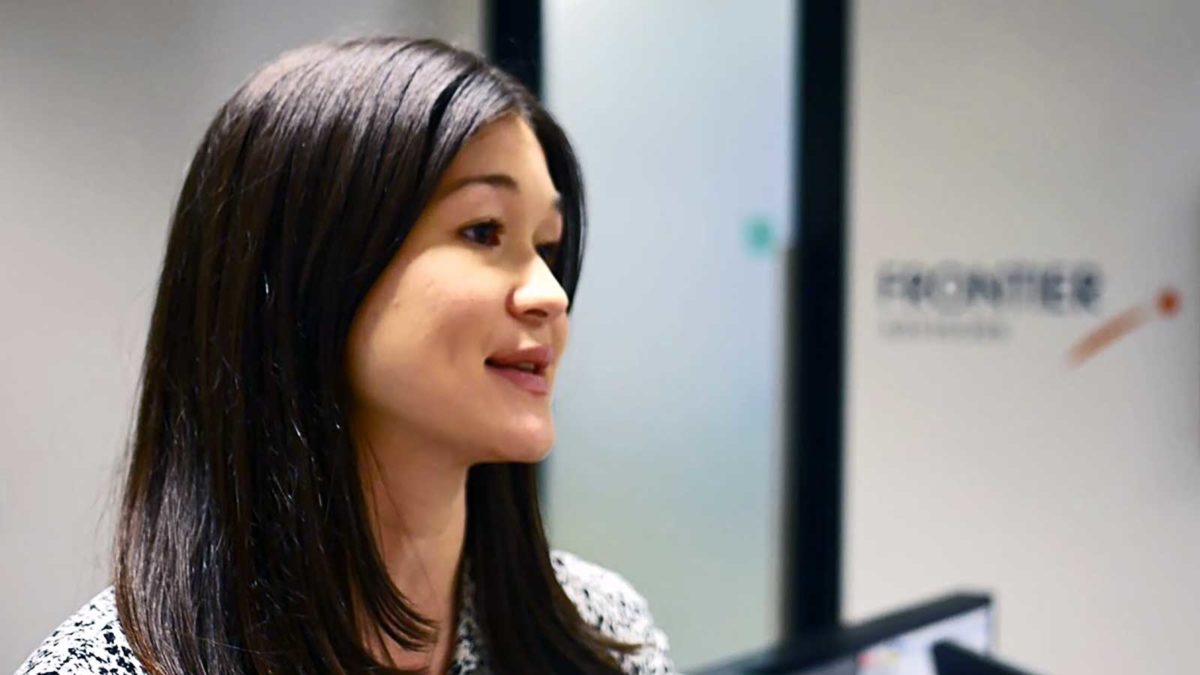Frontier shines more light into manager shadows
Difficult to define and more difficult still to measure, the culture of any organisation is widely regarded as having a major impact on performance. Funds management is no exception.
Asset consultant Frontier has this year been striving to add some detail and colour to the picture to help its clients, and itself, in the process of assessing culture among managers. It is apparent from the work to date that the findings and opinions could be applied throughout the investment industry and outside of it.
At its annual conference (October 6-13) a session on culture showed how the employment of an ‘incident assessment framework’ could lead to a review of a manager rating, or not.
Sarah Cornelius, Frontier consultant, said: “Ultimately, our assessment is made on the balance of probabilities. By its nature there will always be an element of judgement involved. For example, in a case of sexual harassment, we may never know the truth.”
But, she said, Frontier was putting extra weight on culture and there was a lot that asset owners (and others) could do, including ensuring accountability within their own organisations.
“We are building a more integrated and robust structure and using enhanced data to draw out [a manager’s] alignment with our eight principles.”
Those principles, used in the due diligence process of manager selection, were contained in a short paper in May, ‘What Lurks in the Shadows?‘, which was written by Cornelius and Paul Newfield, Frontier’s director of sector research.

The conference session embellished the paper and added the thoughts of three independent industry participants: John Lucey, the CIO of boutique manager Avant Mutual; Michael Wyrsch, the CIO of Vision Super; and Sonya Beyers, an independent director and trustee of BUSSQ. The principles are:
- Value client partnerships and proactively seek to genuinely engage and communicate with clients, particularly where unexpected events arise
- Proactively engage and take action when an event occurs which is detrimental to a client and expeditiously move to address the matter(s) raised
- A strong and inclusive culture in the organisation with a deep sense of belonging and team focus with all employees
- A diverse culture – managers that are broadening diversity within the key decision-making and executive levels and have explicit plans to achieve this outcome
- An embedded fairness and equality principle in the way people are treated regardless of age, gender, ethnicity, sexual orientation, seniority. (This is more than what the manager says and really seeing this manifest in actions on the ground).
- Courage and a desire for continuous improvement from a cultural perspective – managers who courageously identify and call out issues, rectify those issues and learn and grow from those issues.
- Transparency in regard to structure, disclosures and conduct – managers who have a great culture, who have nothing to hide, ought to have a natural motivation to openly share relevant information.
- Free of a pattern of systemic behavioural and cultural issues – since where there is a pattern of such issues (within a team or across a firm) that is likely to point to more fundamental cultural issues (noting these issues may be broad and varied).
With the eight principles, Cornelius said, Frontier considered them ‘holistically’. They were all of equal importance although some clients might apply more weight to some of them than others.

Frontier’s Paul Newfield said at the conference session that while there was a wealth of data and information relating to an organisation’s culture available but “at the end of the day you have to meet with people to unpick the sense of culture and the sense of trust”.
He said: “When you look at how to translate cultural issues into financial outcomes, the word that resonates with me is ‘enduring’. You can’t sustain star performance unless you have a strong culture.”
Sonya Beyers, a lawyer and governance consultant who has been on the BUSSQ board since 2017, said that culture went “way beyond philosophy of financial consequences and fund managers trying to build relationships”. For instance, by allowing different voices to speak from within a manager showed a more open culture and gave the fund a better idea of the firm, she said.
But, from an insider’s perspective of boards, she said later: “Boards love diversity until they get a taste of it. It’s like being asked to a dance. Once you get there you still have to be asked to participate.”
Avant Mutual’s John Lucey said that the alignment between fund and its managers was key. “To me, it’s like hiring individuals. If you wouldn’t put up with bad behaviour from an individual in the workplace, don’t put up with it with your managers.”
He said that 95 per cent of the time everything was usually fine, but 5 per cent of the time it wasn’t. “That’s where culture is important. Are they [managers] willing to help?”
Cues to a problematic culture, the panelists said, included high turnover among a manager’s staff, particularly when good people were leaving. This was not only for investment people but also their support team and across the organisation.
Vision Super’s Mike Wyrsch said the fund would cut back a good-performing manager’s allocation because of culture. “I always believe that managers have a different objective to ours,” he said. “I’d like to believe would terminate them on cultural grounds.”
Vision gets Frontier to “run the ruler over” its culture once a year and then report directly to the investment committee. “We try to embrace failure,” Wyrsch said. “Success is about recognising mistakes as soon as you can.”











